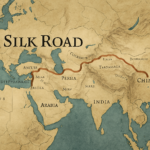
Jose Rizal was born on June 19, 1861, in Calamba, Laguna, Philippines. He was the seventh of 11 children of Francisco Mercado and Teodora Alonso. Rizal’s parents were both educated and encouraged their children to pursue education. His mother was a well-known woman in their community who was known for her intelligence and civic-mindedness.
Rizal’s full name was José Protasio Rizal Mercado y Alonso Realonda. The name “Rizal” came from “Ricial,” which means “green field.” His middle name, “Protasio,” was in honor of Saint Protasius, the patron saint of his hometown. His name “Jose” was in honor of Saint Joseph, the patron saint of workers.
Rizal wrote two novels that exposed the injustices of Spanish colonial rule in the Philippines: “Noli Me Tangere” and “El Filibusterismo.” “Noli Me Tangere” was published in 1887 and “El Filibusterismo” in 1891. These novels depicted the abuse of power and corruption by Spanish authorities in the Philippines, and they were instrumental in raising awareness about the plight of the Filipino people under colonial rule.
He also wrote many essays, poems, and letters that inspired the Philippine Revolution against Spanish rule. Rizal’s writings called for peaceful reform and emphasized the importance of education and national unity. His most famous essay, “The Indolence of the Filipino,” argued against the stereotype that Filipinos were lazy and unproductive and instead pointed to the oppressive conditions that they were forced to endure under Spanish colonialism.
Rizal is considered the national hero of the Philippines, and his image appears on the country’s currency. He is widely revered for his role in inspiring the Philippine Revolution against Spanish colonialism and for his contributions to Philippine literature and culture. Rizal’s legacy continues to inspire Filipinos to this day, and he is often cited as an example of courage, integrity, and patriotism.
Rizal was a polyglot who spoke at least 22 languages, including Tagalog, Spanish, French, German, and Japanese. His fluency in multiple languages allowed him to communicate with people from different cultures and countries during his travels around the world. Rizal’s knowledge of languages also helped him to translate his works into different languages, which helped to spread his message of reform and revolution beyond the Philippines.
He received his primary education in his hometown of Calamba before studying at the Ateneo de Manila and the University of Santo Tomas in Manila. Rizal excelled in his studies and was known for his intelligence and diligence. He was also active in various extracurricular activities, including fencing and theater.
Rizal continued his studies in Europe, where he earned a degree in medicine and pursued further studies in philosophy and the arts. He studied in several countries, including Spain, France, Germany, and Italy, and was exposed to different cultural and intellectual influences. Rizal’s time in Europe had a profound impact on his thinking and his work, and it helped to shape his ideas about nationalism, colonialism, and social justice.
Rizal’s travels around the world included stops in Spain, France, Germany, Austria, Belgium, Switzerland, Italy, and England. During his travels, Rizal met with many prominent intellectuals and activists who shared his vision for reform and revolution. His experiences abroad also gave him a broader perspective on global affairs and helped to shape his worldview.
Rizal was a member of the Masonic Lodge, which was a secret society that advocated for political and social reform. Rizal joined the Masonic Lodge while he was studying in Europe and he remained an active member until his death. The Masonic Lodge was an influential force in the Philippine Revolution, and many of its members were involved in the movement for independence from Spain.
Rizal was an accomplished artist who was skilled in drawing, painting, and sculpture. He used his artistic talents to create portraits, sketches, and illustrations for his books and essays. Rizal’s artworks reflected his love for his country and his desire for social and political change.
Rizal was a prolific writer who produced an extensive body of work that included novels, essays, poetry, and letters. His writings covered a wide range of topics, including history, politics, culture, and religion. Rizal’s writings were instrumental in shaping Philippine national identity and inspiring the movement for independence from Spain.
Rizal was a man of many talents and interests. He was a poet, novelist, artist, physician, linguist, and activist. His diverse skills and experiences gave him a unique perspective on Philippine society and the world at large.
Rizal’s execution on December 30, 1896, at the age of 35, is considered a turning point in Philippine history. His death sparked outrage among Filipinos and galvanized the movement for independence from Spain. Rizal’s martyrdom is commemorated every year on Rizal Day, which is a national holiday in the Philippines.
Rizal’s death was a tragic loss for the Philippines and the world. Had he lived longer, he could have continued to contribute to the struggle for social and political change. Despite his short life, Rizal’s legacy continues to inspire people around the world to fight for justice and freedom.
Rizal’s works have been translated into many languages, including English, Spanish, French, German, and Japanese. His writings have had a profound impact on Philippine literature and culture and have helped to shape the country’s national identity.
Rizal was a firm believer in education as a tool for social and political change. He believed that education was essential for Filipinos to attain independence and overcome the injustices of colonialism. Rizal’s advocacy for education continues to be relevant today, as access to education remains a key issue in the Philippines and around the world.
Rizal’s statue stands in many cities and towns across the Philippines, as well as in other countries around the world. His image has become a symbol of Philippine nationalism and the struggle for independence from colonialism.
Rizal’s life and work have inspired many artists, writers, and musicians. His novels have been adapted into plays, operas, and films, and his ideas have been the subject of numerous academic and cultural studies.
Rizal’s family members also played important roles in Philippine history. His brother Paciano was a revolutionary leader who fought against Spanish colonialism, and his sisters were active in social and cultural organizations that promoted Philippine nationalism.
Rizal’s influence extends beyond the Philippines to other parts of Southeast Asia and beyond. His ideas about nationalism, colonialism, and social justice continue to resonate with people in countries around the world that are struggling for independence and human rights.
Rizal’s life and work have been the subject of numerous biographies, academic studies, and cultural works. His legacy continues to be studied and celebrated by scholars and artists around the world.









